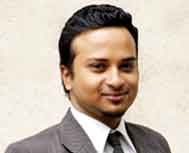Analyzing the Ideology behind the Propaganda

The IIMs, the foremost institutions of the country, have been the subject of myriad discussions in the recent media coverage and debates. These are institutions that have established themselves in the education sector over the past decade without any government aid and preserved their autonomy all the while delivering the cream of the bunch of management graduates. Now due to a proposed bill, the proponents of the academic association feel that the autonomy of these institutions will be lost and hence, so will the quality of education.
The subject of IIM bill has been in discussion for the last two-and-a-half years and it has gone through various amendments and versions. About a week or so ago, the draft bill, approved earlier by all IIMs and the HRD Ministry, has undergone a great deal of change. The proposed new IIM bill from the HRD ministry has met with immense criticism and debate over its shortcomings and political influence. It has been said by many that the proposed bill claws back a lot of existing autonomy of these institutions and reduces IIM boards to become handmaidens of the ministry. However, few individuals hold different beliefs. Our opinion column As I See It by R.C. Natarajan, Director, Tapmi, delves into the lesser discussed consequences of the proposed IIM Bill in his Fear of the Unknown among Private Business Schools. It is undoubtedly an interesting read and highlights key facts of the discussion.
This issue of Higher Education Review explores Best Institutes for Excellent faculty, 2015, in the spirit of identifying institutions where faculty uphold the values of the institutional mission, strive to improve existing teaching methodologies, and explore the boundaries of research to facilitate higher order learning for their students. The list enumerates 25 Engineering institutions and 25 Business Schools across the country that has faculty members striving to push the boundaries of teaching, research and learning.
We have ranked Engineering Colleges and B-Schools by combining the scores of a perceptual survey with the addition of a factual survey, which is based on the data inputs provided by the institutes. We strongly believe that it is important to bring names to the spotlight so that other institutions can emulate their methodologies and ideologies to improve the current higher education scenario.
We hope this proves to be beneficial to you. Do write to us.
The subject of IIM bill has been in discussion for the last two-and-a-half years and it has gone through various amendments and versions. About a week or so ago, the draft bill, approved earlier by all IIMs and the HRD Ministry, has undergone a great deal of change. The proposed new IIM bill from the HRD ministry has met with immense criticism and debate over its shortcomings and political influence. It has been said by many that the proposed bill claws back a lot of existing autonomy of these institutions and reduces IIM boards to become handmaidens of the ministry. However, few individuals hold different beliefs. Our opinion column As I See It by R.C. Natarajan, Director, Tapmi, delves into the lesser discussed consequences of the proposed IIM Bill in his Fear of the Unknown among Private Business Schools. It is undoubtedly an interesting read and highlights key facts of the discussion.
This issue of Higher Education Review explores Best Institutes for Excellent faculty, 2015, in the spirit of identifying institutions where faculty uphold the values of the institutional mission, strive to improve existing teaching methodologies, and explore the boundaries of research to facilitate higher order learning for their students. The list enumerates 25 Engineering institutions and 25 Business Schools across the country that has faculty members striving to push the boundaries of teaching, research and learning.
We have ranked Engineering Colleges and B-Schools by combining the scores of a perceptual survey with the addition of a factual survey, which is based on the data inputs provided by the institutes. We strongly believe that it is important to bring names to the spotlight so that other institutions can emulate their methodologies and ideologies to improve the current higher education scenario.
We hope this proves to be beneficial to you. Do write to us.

.jpg)